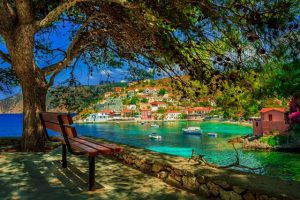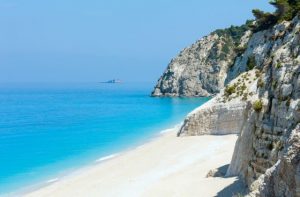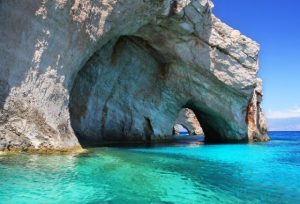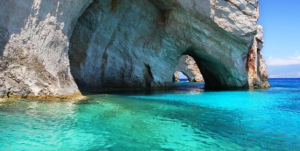The temperate climate; the deep and cool sea waters; the mountains; the lush vegetation; the cultural heritage; and the cheerfulness of the inhabitants, make the Ionian Islands the ideal place for a holiday as well as rest and relaxation.
What is more, the traits of the Ionian Islands are perfectly combined with a flawless tourism infrastructure, excellent hotel accommodations, restaurants, diving centers, sea sports, cultural events, and a multitude of sights, historic monuments and museums worth visiting.

Scattered along the western coastline of Central Greece, the Ionian Islands as they are known, are an island cluster comprising twelve small and large islands whose total surface area comes to 2,200 square kilometers. Zakynthos, Ithaca, Corfu (Kerkyra), Kefalonia, Lefkada, and Paxi are the six, large Ionian Islands. Antipaxi, Erikousa, Mathraki, Othoni, Meganisi and the deserted islets of Strofades south of Zakynthos are the smaller Ionian Islands.
Together with the island of Kythira and the neighboring Antikythira the islands form the island cluster of Eptanisa. Nevertheless it should be noted that Kythira and Antikythira are completely cut off from the rest of the Ionian islands situated as they are across southern Peloponnese and the coast of Laconia.
Once, the Ionian Islands were part of Central Greece but were torn apart when the terrain sank due to the seismic activity along the great coastline fault of the Ionian Sea. This accounts not only for the ragged shores and hauntingly beautiful beaches but it also accounts for the islands’ tall mountains, once part of the Pindos mountain range which crosses Central Greece. It also accounts for the great depth of the waters in the area which, at 4,406 meters, is the greatest in the Mediterranean.

The Ionian islands have a mild and temperate climate which makes them the ideal location for vacation or residence. In winter, the mountains of Central Greece stop the cold northern winds from reaching the islands while, in summer, the heat is tempered by the meltemia, the soft, northwestern winds, and the sea breezes. Due to the air currents prevalent on the Ionian islands, many of the island beaches have developed into internationally acclaimed windsurfing centers.
The Ionian Islands have been inhabited since Paleolithic times, have been through many invasions, and have received the influence of a variety of cultures.
The Ionian Islands were part of the Byzantine Empire until1204 when the Franks took over Constantinople and the Ionian Islands were eventually ceded to the Venetians. Under Venetian rule, the Ionian Islands formed their own local nobility whose register survived as late as the 19th century.

From the time of Frankish rule until 1864 when they were joined with Greece, the Ionian Islands were also ruled by a number of foreign conquerors. The presence of the Europeans on the Ionian Islands at a time when Greece was still under Ottoman rule gave rise to significant intellectual activity something that is still visible today both in the islands’ architectural tradition as well as their charming cultural traits.
Source: visitgreece
Ask me anything
Explore related questions





